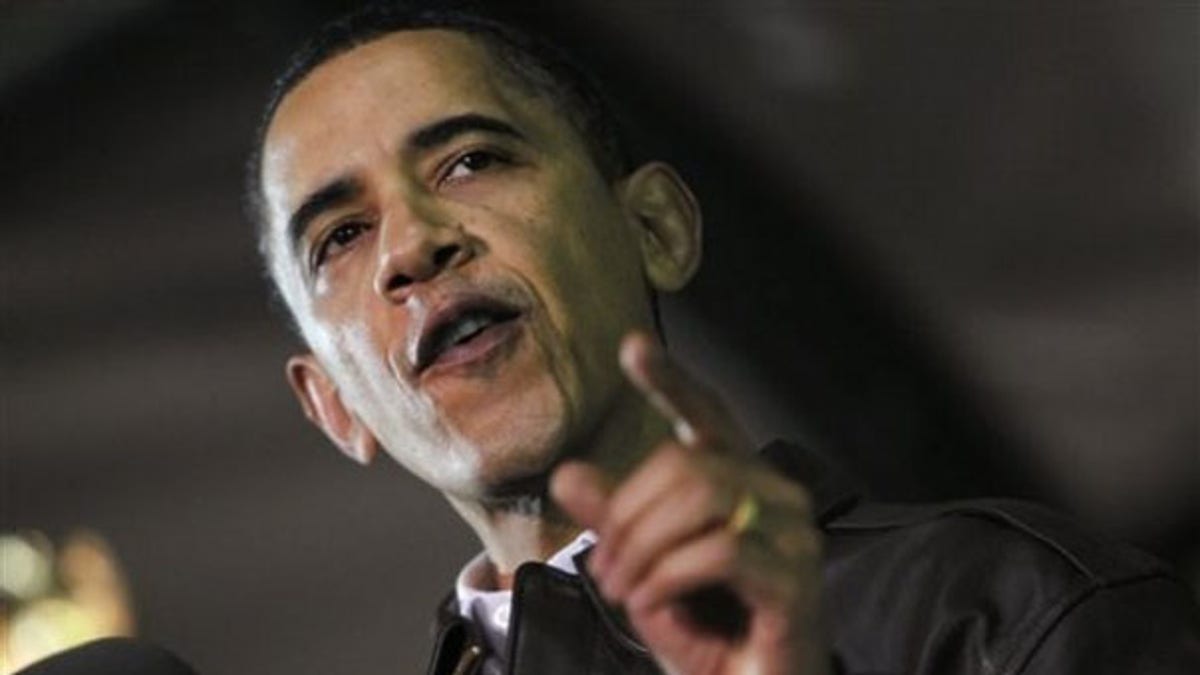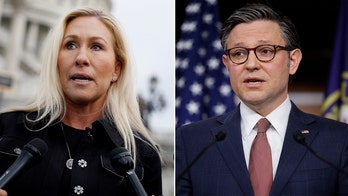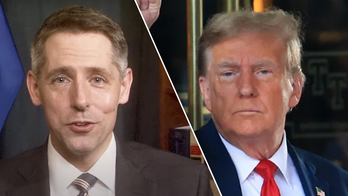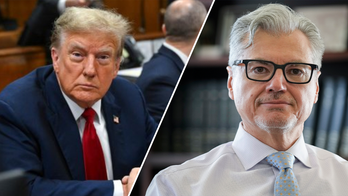
President Obama rallies troops at Bagram Air Base in Afghanistan March 28. (AP Photo)
He signs health care reform. He strikes an elusive arms reduction deal with Russia. He zings Republicans with 15 recess appointments the first chance he gets. He jets to Afghanistan to pep talk the troops. All this in the course of a week.
But with President Obama reclaiming his mojo and setting his sights next on financial, immigration, education reform and beyond, the administration still is not moving to tackle the economic slump with the same fervor it applied to health care reform.
Congress and the administration made an incremental, stopgap step toward addressing jobs concerns with the $38 billion package of tax breaks for businesses and infrastructure spending signed by Obama March 18. But it was nowhere near as big as originally envisioned, and pales in scope and cost to the 2,000-page, nearly $1 trillion health care package.
With 8.4 million jobs lost since the recession began, the rosiest of estimates say the new economic incentives package could create a fraction of that, 250,000 jobs, by the end of 2010.
Though jobless figures show the unemployment crisis easing -- gone are the monthly losses in the scores or hundreds of thousands -- the president continues to face pressure to make a big move on the economy.
Larry Sabato, director of the University of Virginia Center for Politics, said Obama had a great week and the polls reflect a temporary bump for him -- but that health care reform will remain as controversial as it's ever been and the economy will continue to be the overriding concern in November.
"This is very much about the economy. Mid-term elections almost always are," he told Fox News. "Health care is going to be probably the number two issue."
By a long shot.
A CBS/New York Times poll from February showed the economy clocking in as the top issue for 52 percent of people, with health care registering in second place at 13 percent.
In an election year when jobs are far and away the most important issue to voters, critics say the president has not followed through on his State of the Union pledge to make the economy his number one priority.
The administration moved to emphasize that plank of the agenda late last year, with a Washington jobs summit and the start of a jobs-focused Obama tour, but that was soon replaced by a bipartisan health care summit and a new cross-country presidential tour to sell the benefits of the health care package to the public.
As the president spread around his attention, jobless numbers are looking better. The number of people filing first-time unemployment claims fell consistently throughout March. The latest weekly report from the Labor Department Thursday showed first-time unemployment claims dropped by 14,000 to 442,000 -- though part of that was due to a change in the way the department calculates the data.
White House senior adviser Valerie Jarrett touted the recently signed jobs package on ABC's "This Week" on Sunday.
"We signed a jobs bill last week. That's really important, to provide tax credits to small business," she said.
But what the numbers don't show is a pickup in hiring. The unemployment rate for February held steady at 9.7 percent.
And for the one step forward the latest jobs measure might represent, Republicans argue health care reform was two steps back at a volatile time.
"We're already seeing the economic fallout," Senate Minority Leader Mitch McConnell said in the Republicans' weekly radio address Saturday, noting that big companies like John Deere and Caterpillar are projecting millions of dollars in added expenses due to the law.
"At a moment when millions of Americans are looking for work, Democrats in Washington just voted to spend $2.6 trillion on a health care bill that will make it even harder to create private-sector jobs," he said.
Going forward, Democrats appear to be linking their other agenda items to the economy, arguing -- as Obama did with health care reform -- that pursuing reforms in other areas will ultimately be done for the greater economic good.
Obama pitched financial regulatory reform in his radio address two weekends ago as a safeguard against another Wall Street-driven economic collapse.
"The fact is, it's now been well over a year since the near collapse of the entire financial system -- a crisis that helped wipe out more than 8 million jobs and that continues to exact a terrible toll throughout our economy. Yet today the very same system that allowed this turmoil remains in place," he said.
Sen. Charles Schumer, D-N.Y., is now pitching immigration reform as a matter of economic well-being. On NBC's "Meet the Press" Sunday, Schumer said immigration legislation is not off the table in part for that reason.
"Let's look at how desperately we need it. Fifteen thousand people cross our border illegally every day. Most of them take jobs from Americans," he said. "And yet at the same time there are certain people we need in this economy to help us grow and we can't get them: engineers, doctors, farm workers."




